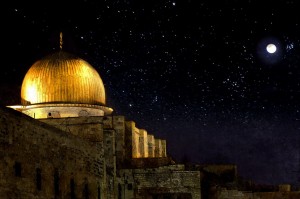Originally posted 2020-03-21 06:54:01.

Allah wanted to give the Prophet a chance to see some manifestations of His Power, so that his heart could become filled with trust in Allah.
By Dr. `Ali Al-Salabi
As long as he was alive, Abu Talib prevented the Quraish from harming the Prophet (peace be upon him). True, Abu Talib was merely one man and one man can only do so much, but in a tribal society like that of the Quraish, individual chieftains were highly respected. And given that Abu Talib was a respected chieftain, the Quraish did not want to lose him or go against him, and so the Prophet was relatively safe from their harm. But as soon as Abu Talib died, his protection went with him, and the Quraish began to persecute the Prophet with impunity – even common members of the Quraish joined in their leaders’ onslaught against the Prophet. As for the Prophet’s wife, Khadijah, when she died only a few months after the death of Abu Talib, the Messenger of Allah lost her comforting presence.
Then when the Quraish became more vile and harsh in their persecution, the Messenger of Allah went to At-Ta’if, hoping for help and support from its people, but receiving instead a hostile and harsh welcome from them and their leaders. Not only did they reject the Prophet’s message, they also sent a messenger to Quraish’s leaders, informing them about the Prophet’s Da`wah efforts in At-Ta’if. As a result, the only way the Messenger of Allah was able to enter Makkah was under the protection of a disbelieving man. Based on all of these sad events, the year in which they occurred became known as the Year of Grief. But then relief came to the Prophet in the most unexpected of forms – a miraculous night journey to Jerusalem and to the heavens.
There were many purposes behind that night journey. First, Allah wanted to give the Prophet (peace be upon him) a chance to see some manifestations of His Almighty Power, so that the Prophet’s heart could become filled with trust in Him, and so that the Prophet could increase in strength, strength that he would need to continue in his struggle against the polytheists of Makkah and beyond.
For the same purpose, prophet Musa too was made to see some of Allah’s Greater Signs. Allah said:
(Allah) said : “Cast it down, O Musa (Moses)!” He cast it down, and behold! It was a snake, moving quickly. He (Allah) said: “Grasp it, and fear not, We shall return it to its former state, – “And press your (right) hand to your (left) side, it will come forth white (and shining), without any disease as another sign. That We may show you (some) of Our Greater Signs.” (Ta-Ha 20:17-22)
After Musa’s heart became immersed in the appreciation of those signs, Allah said to him:
That We may show you (some) of Our Greater Signs. (Ta-Ha 20: 23)
In the journey of the Israa’ and the Mai`raj, Allah showed His Messenger those Greater Signs, in preparation for the Prophet’s migration and for the great struggles that were to come afterwards. During the journey of Al-Israa’ and Mi`raj, the Prophet saw much from the unseen world, such as angels, the heavens, Paradise, the Hellfire, and so on.
In the Noble Qur’an, the Prophet’s night journey to Jerusalem is discussed in Surah Al-Israa’, while his consequent ascension to the heavens is discussed in Surah An-Najm. In Surat Al-Israa’, Allah mentioned the wisdom behind the Prophet’s miraculous night journey as He says,
In order that We might show him (Muhammad g) of Our Ayat (proofs, evidences, lessons, signs, etc.). (Al-Israa’ 17: 1)
And in Surat An-Najm, Allah says:
Indeed he (Muhammad) did see, of the Greater Signs, of his Lord (Allah). (An-Najm 53:18)
Speaking about the lessons and morals we can learn from the Prophet’s miraculous night journey, Abu al-Hasan An-Nadwi, may Allah have mercy on him, said, “Al-Israa’ was not simply a one of a kind incident, during which the Messenger of Allah saw the Greater Signs, and during which the Prophet saw with his own eyes the dominions of the heavens and the earth; beyond these things, the Prophet’s night journey involved many profound meanings and far-reaching wisdoms. Chapters Al-Israa’ and An-Najm, which were revealed with information about Al-Israa’, announced that Muhammad is the Prophet of both Qiblahs (Jerusalem and Makkah), that he is the Imam of the east and the west, that he is the inheritor of the Prophets that came before him, and the Imam of the generations that were to come after him.
During the Prophet’s journey, Makkah and Jerusalem were juxtaposed (showing a strong relationship and link between the two), as were the Inviolable House (in Makkah) and Al-Masjid Al-Aqsaa (in Jerusalem). Also during that journey, the Prophets prayed behind him, a unique occurrence that announced the comprehensive-ness of his message, the lastingness of his leadership (and Prophethood), and the humanity of his teachings, which are right and applicable during all times and in all places.”[1]
_____________________________
Source: Taken with modifications from the author’s The Noble Life of the Prophet Muhammad.
[1] Refer to Al-Asas Fis-Sunnah (1/292).

